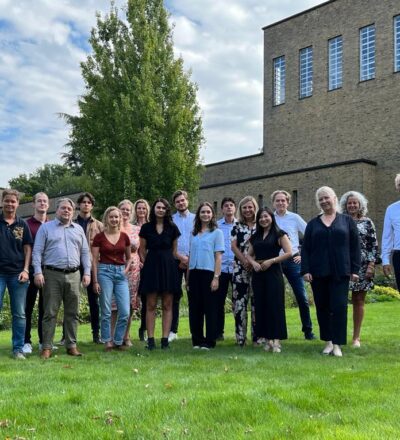At the heart of our efforts is the transition towards a CO2-neutral, circular economy in 2050. But a sustainable future requires more than technological innovations: it requires collaboration. That’s why our core business is not in engineering, but in connecting people.
At the Institute of Sustainable Process Technology (ISPT), we assist the industry and society in achieving circularity at multiple levels. We are independent, non-profit and based in the Netherlands.
Our idea is that through open innovation companies can be more successful. Open innovation means that companies share practical experience and R&D ideas with each other – rather than just doing this alone or inhouse. The business model remains central, the technology and co-creation are additional advantages.
That is where we play our part: creating a trust-based environment that connects the parties involved and facilitate their sharing of expertise and know-how in joint projects. This gets development off to a flying start and accelerates feasible, innovative and sustainable solutions that will lead to full circularity by 2050.
All of our projects contribute to these Sustainable Development Goals (SDG’s) set by the United Nations.
ISPT is the leading institute for open innovation in the process industry in the Netherlands
Our vision
At ISPT we envision a waste-free economy in which products and raw materials are either recycled or reused. This means transforming the whole value chain, and that is a fundamentally different approach.
The transition of the process industry is becoming increasingly complex. So complex, that companies can no longer do it alone. The challenges ISPT sees, can roughly be divided into 3 transitions:
Join us
ISPT operates independently and on a non-profit base. Through extensive collaborations with companies and academic institutions, we acquire knowledge, data, and insights vital in realizing the ultimate objective: a circular and climate-neutral process industry by 2050.
ISPT serves as a platform and network organization, and has a significant impact in the realm of the energy transition, as well as material transition and sustainable agriculture. We feel at home in complex projects involving multiple actors and stakeholders.
Let’s join forces to collaborate in mission driven programs where costs and risks are shared. Our partners are mostly Dutch and Belgian companies – big and small – with common interests and a shared vision in achieving full circularity in 2050.
Also interesting to read
- Our integrated vision on the 3 major transitions: energy, materials and agrifood
- How the industry plays a crucial role in establishing a sustainable future
- The road to a green industry
We love to share stories about a sustainability. Join our LinkedIn-community or subscribe to our newsletter.
Any questions or enquiries?
Please get in touch. Our passionate team of professionals is looking forward to answer any questions you may have.
